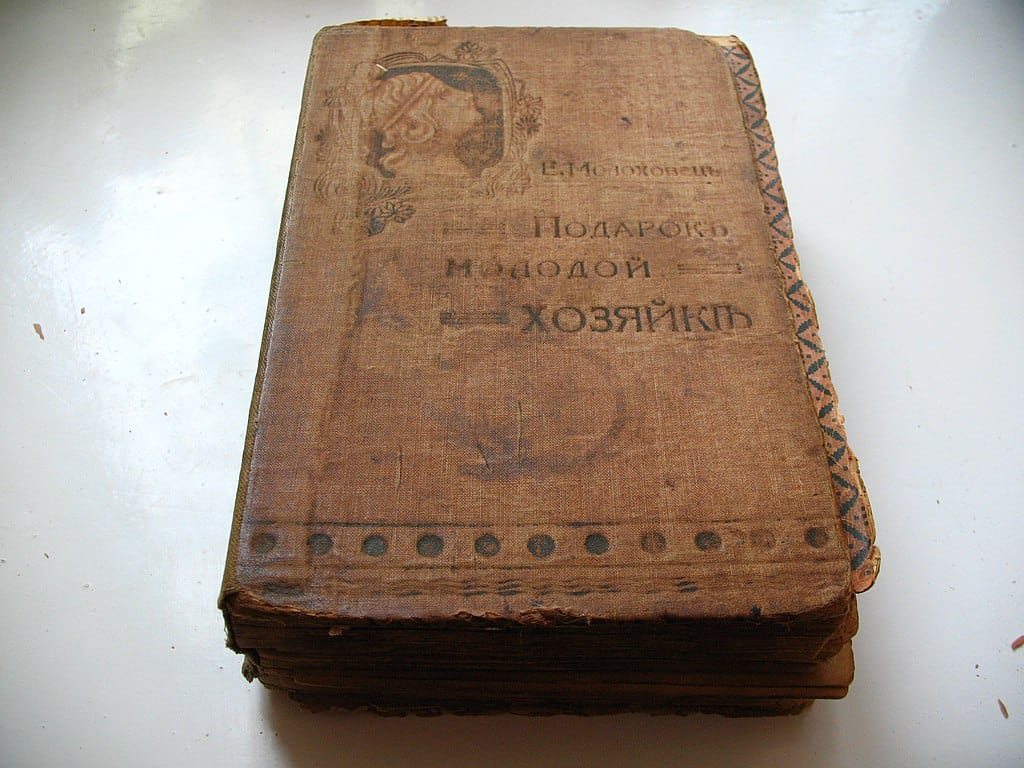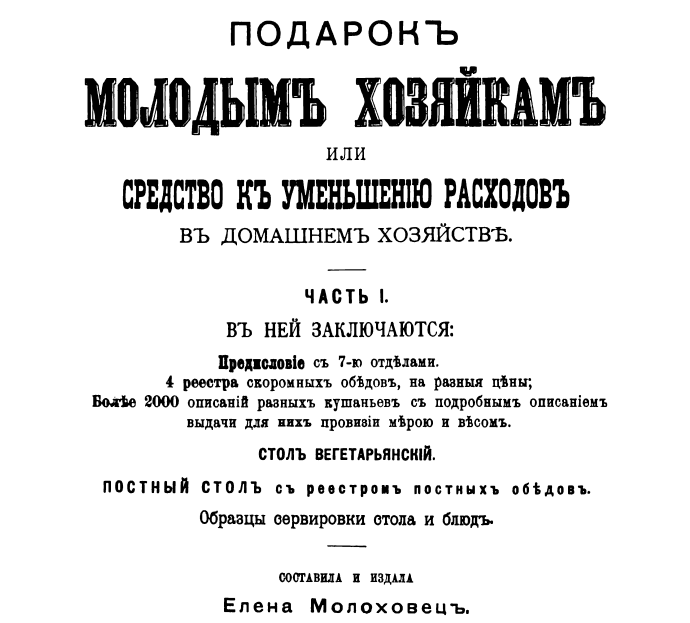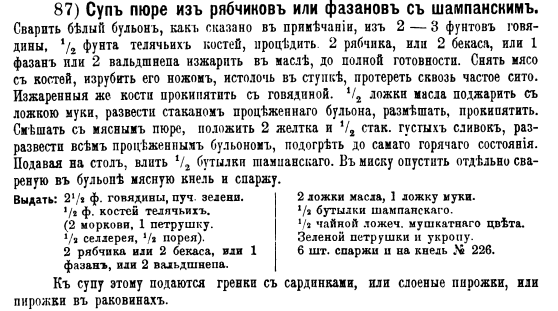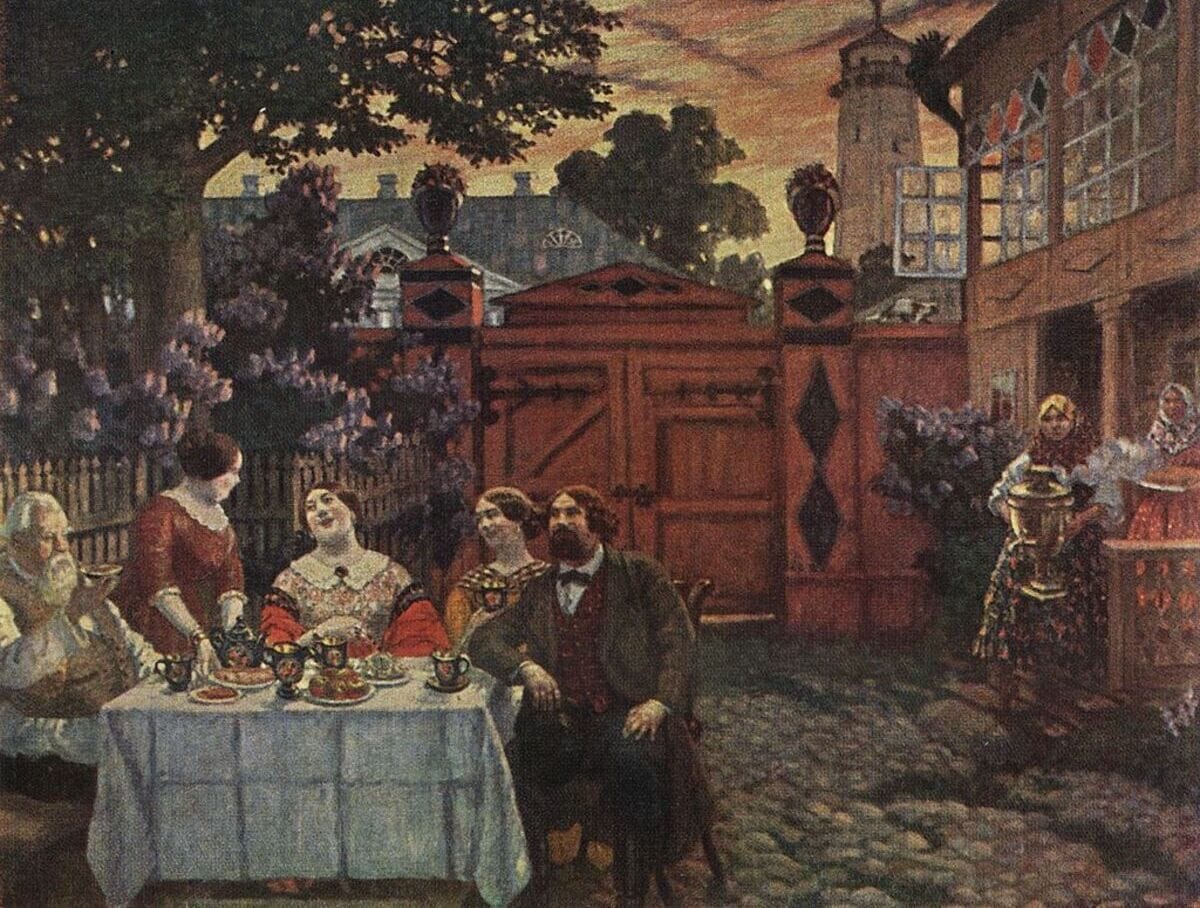On the Internet you can often find a phrase attributed to Elena Molokhovets, the author of the famous pre-revolutionary cookbook. She has many options, but in all cases she begins with the words: “If guests unexpectedly came to you...” We decided to check if Molokhovets wrote anything similar.
The phrase attributed to Elena Molokhovets can be found in countless variations. Here are a few of them: “If guests come to you, and you have nothing, send a man to the cellar, let him bring a pound of butter, two pounds of ham, a dozen eggs, a pound of caviar, red or black, and prepare light snacks” (Fishki.net, "Classmates"); “Send the cook to the cellar, let her cut cold boiled pork, salmon, add soaked cranberries, sprinkle with fresh herbs and serve” (Facebook); “If guests unexpectedly come to you, and there is nothing at home, go down to the cellar and take a leg of lamb” (book “Ideal dishes for a slow cooker").
Elena Molokhovets’s book “A Gift for Young Housewives, or a Means for Reducing Expenses in the Household” (in some editions - “A Gift for a Young Housewife”) was first published in 1861 and then went through three dozen reprints until 1917. With each edition, the number of recipes only increased - from 1500 in 1861 to 4000 by the beginning of the 20th century.

Book Molokhovets - not only a collection of recipes, but also, to some extent, a guide to housekeeping, written by a wealthy but thrifty housewife. In the preface, she writes: “Without having before her eyes a register of everything that is included in the food, not only the housewife, but even the cook, who is exclusively occupied with that, cannot suddenly remember everything; from this it follows that throughout the whole morning until lunchtime you have to go to the pantry several times, first for one thing, then for another, which not only soon becomes boring, but is also extremely difficult for every housewife, and even impossible in social life.”

Regardless of the year of publication, the structure of the book “A Gift for Young Housewives” has always remained the same. The preface describes the general rules of housekeeping: how to save, how to arrange a house, the need to keep your home clean and tidy. Then general culinary rules, comparative tables of weights and measures. And only then - detailed recipes, divided by topic, and serving rules.
Advice on what to do if guests show up unexpectedly could be in the first part, preceding the recipes. But there is nothing even remotely similar there. Given the general style of the book, the advice looks rather strange: the manual provides a detailed description of cooking and serving, and not just advice “make sandwiches for your guests from everything in a row.” “The purpose of this book is to provide a means, with a small fortune, at a moderate expense, sometimes without having an excellent cook, to constantly have a good, tasty, healthy and varied lunch,” writes Molokhovets.
The origins of this apocryphal quote should be sought in Soviet life. Pickles, pates, hazel grouse and pheasants from the book Molokhovets looked fantastic and surreal for the Soviet reader. Historian Natalya Lebina in the book “Soviet everyday life: norms and anomalies” quotes a fragment from newspapers in 1929: “The famous book Molokhovets, which is usually talked about with a smile, is, in essence, not as harmless as people usually think about it. <…> Everyday, moral and kitchen recipes poured out in abundance from 1,500 pages. Each pike was stuffed with openly Black Hundred ideas, the borscht was seasoned with finely chopped monarchist maxims, the dumplings were stuffed with piety, the vile bourgeois aroma came through in the aroma of exquisite dishes.”

Molokhovets’s book was republished in 1939, the same year when the long-standing project of the People’s Commissar of the Food Industry Anastas Mikoyan was published “A book about tasty and healthy food" And this is no coincidence. According to Natalya Lebina, “the authorities considered it possible at the end of the 1930s to bring to the attention of the Soviet people knowledge about completely bourgeois methods of preparing and serving food.”

Most likely, the existence of a quote about an unexpected visit from guests is an oral anecdote from the era of shortages, when there was not only tender suckling pig on the shelves, but also any other edible meat. But then the quote took root, and, for example, in the book of literary critic Alexander Arkhangelsky “1962. Epistle to Timothy“The mythological quote is adjacent to real recommendations from the book by Molokhovets: “Hundreds of yolks (pour out the whites!) for one Easter cake; pink ham, which can be taken out from the underground if guests arrive unexpectedly; scarlet mousses and white sherbets, gray heads of sugar.” Now that the book is again available to any reader, one can easily verify that the quote has nothing to do with Molokhovets.
Cover photo: Boris Kustodiev, “Tea Party”/Wikimedia Commons
Incorrect quote attribution
If you find a spelling or grammatical error, please let us know by highlighting the error text and clicking Ctrl+Enter.






